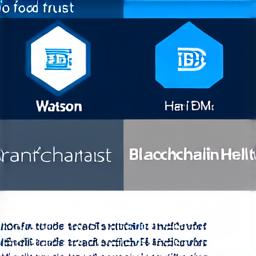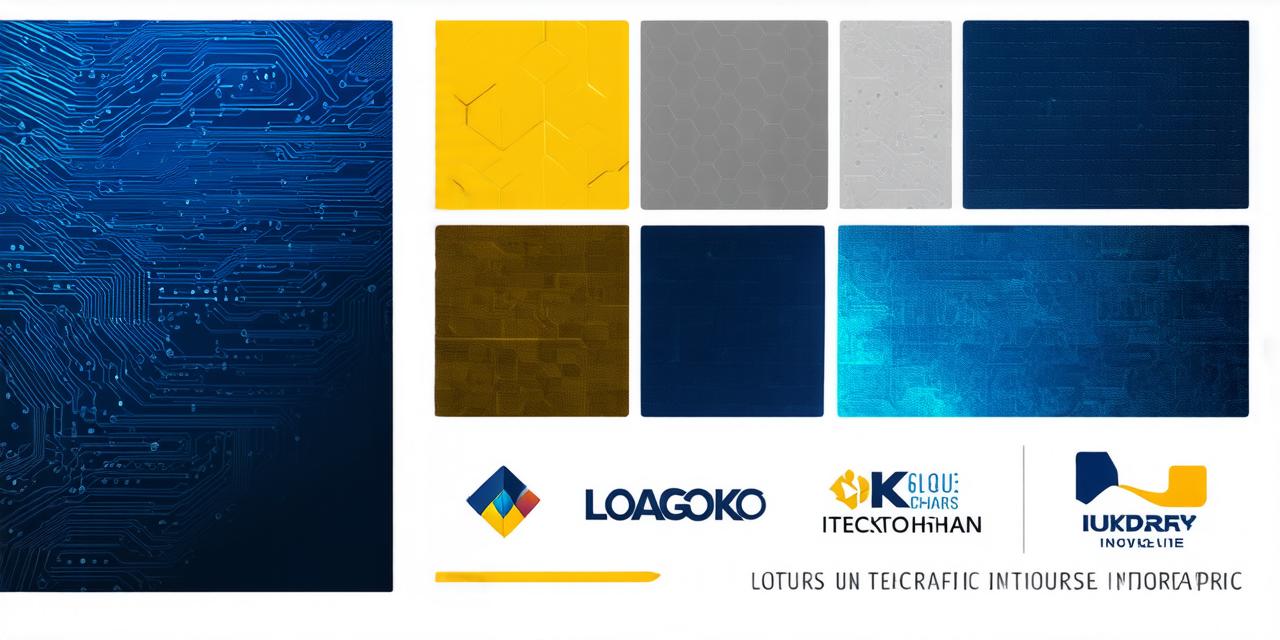1. IBM
IBM is one of the most prominent companies in the world of blockchain technology. They have been working on various blockchain projects since 2013 and have developed a number of products and services that utilize this technology. Some of these include:
- IBM Food Trust: This platform uses blockchain to create a transparent and secure supply chain for food products. It allows for real-time tracking and verification of products from farm to shelf, making it easier to identify and prevent fraud.
- IBM Blockchain for Trade: This product enables businesses to manage trade transactions in a more efficient and cost-effective way. It uses blockchain to create a digital ledger that can be accessed by all parties involved, reducing the need for intermediaries.
- IBM Watson Health: This platform uses blockchain to securely store and share medical data, making it easier for doctors and researchers to access important patient information.
2. Amazon
Amazon is another company that has been exploring the potential of blockchain technology. They have filed several patents related to this field and are reportedly working on a number of projects. Some of these include:
- Supply chain management: Amazon is using blockchain to improve the transparency and efficiency of its supply chain operations. By creating a digital ledger that can be accessed by all parties involved, Amazon is able to reduce costs and improve communication between suppliers and retailers.
- Product tracking: Amazon is also using blockchain to track products from production to delivery. This allows for real-time monitoring of the supply chain and helps to prevent fraud.
- Payment processing: Amazon has been experimenting with blockchain-based payment systems, which could potentially reduce the time and costs associated with traditional payment methods.
3. Microsoft
Microsoft is another company that has been making waves in the world of blockchain technology. They have developed a number of products and services that utilize this technology, including:
- Azure Blockchain Service: This platform allows businesses to create and manage their own blockchain networks. It provides a range of tools and resources to help companies develop and deploy custom blockchain solutions.
- Microsoft Identity Platform: This product uses blockchain to securely store and manage user identities. It allows for decentralized authentication and authorization, which can be particularly useful in industries such as healthcare and finance.
- Azure Logic Apps: This service allows businesses to create automated workflows that use blockchain data. This can help to streamline operations and improve efficiency across a range of industries.

4. Walmart
Walmart is one of the largest retailers in the world, and they have been exploring the potential of blockchain technology for some time now. They have implemented several blockchain-based initiatives, including:
- Food traceability: Walmart has partnered with IBM to create a blockchain-based platform that tracks the origin and movement of food products. This allows for real-time monitoring of the supply chain and helps to prevent fraud.
- Pharmaceutical tracking: Walmart has also implemented a blockchain-based system for tracking pharmaceuticals. This system uses blockchain to create a tamper-proof record of each product, making it easier to identify counterfeit drugs.
- Supply chain management: Walmart is using blockchain to improve the transparency and efficiency of its supply chain operations. By creating a digital ledger that can be accessed by all parties involved, Walmart is able to reduce costs and improve communication between suppliers and retailers.
5. Maersk
Maersk is one of the world’s largest shipping companies, and they have been working with IBM on several blockchain-based initiatives. These include:
- TradeLens: This platform uses blockchain to create a digital ledger that can be accessed by all parties involved in a trade transaction. It allows for real-time tracking of goods and reduces the need for intermediaries, making it easier and more cost-effective to manage international trade.
- Provenance: Maersk has also partnered with IBM to create a blockchain-based platform that tracks the origin and movement of products throughout their lifecycle. This allows for greater transparency and traceability in the supply chain, which can be particularly useful in industries such as fashion and electronics.
- Vessel Sharing Services: Maersk has also developed a blockchain-based system for managing vessel sharing services. This system uses blockchain to create a transparent and secure platform for sharing resources and information among shipping companies.
In conclusion, the use of blockchain technology is becoming increasingly common across a range of industries. From finance to retail, blockchain is being used to improve transparency, efficiency, and security. The examples provided in this article are just a few of the many companies that are currently exploring the potential of blockchain technology. As the technology continues to evolve, we can expect to see even more innovative uses of blockchain in the future.
